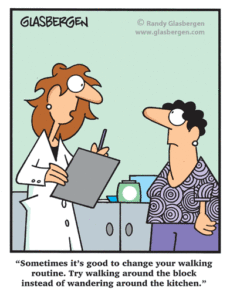Artificial Intelligence (AI) is revolutionizing the field of medicine, improving patient outcomes, and enhancing healthcare delivery. From robot-assisted surgeries to personalized medicine, AI is making significant strides in various areas of medicine. In this article, we will explore the impact of AI on different aspects of healthcare and delve into the ways it can improve and enhance each of these areas.
The Power of AI in Medical Research and Patient Care
Just a little heads up: some of the links on this site may be affiliate links, which means if you make a purchase through them, we might get a little kickback. But don’t worry, it won’t cost you a cent extra! Think of it as the universe secretly thanking us for helping you find a great deal. Your support keeps the good vibes flowing.
1. Diagnosis and Medical Imaging:
a) AI can greatly enhance the accuracy and speed of diagnosing medical conditions through medical imaging by analyzing images and identifying abnormalities with precision. With AI algorithms, healthcare professionals can make quicker and more accurate diagnoses.
b) Examples of AI algorithms or tools being used to detect and classify abnormalities in medical images include convolutional neural networks (CNNs) and deep learning models. These AI technologies can analyze large datasets and learn patterns to identify and classify diseases efficiently.
[Source: https://www.ncbi.nlm.nih.gov/pmc/articles/PMC7273452/]
2. Drug Discovery and Development:
a) AI plays a significant role in facilitating the process of drug discovery by analyzing vast amounts of data and accelerating the development of new medicines. With AI, researchers can streamline the identification of potential drug candidates and predict their effectiveness.
b) The advantages of using AI in predicting drug-target interactions and optimizing drug design include faster identification of potential drug targets, reduced cost and time in development, and increased efficacy of new medicines.
[Source: https://www.nature.com/articles/d41586-019-03222-z]
3. Personalized Medicine and Genomics:
a) AI utilizes genetic data to predict an individual’s risk for certain diseases and guide personalized treatment plans. By analyzing genomic information, AI can assist healthcare professionals in tailoring treatments specific to a patient’s genetic makeup.
b) AI can interpret large-scale genomic data to identify potential therapeutic targets. It can analyze vast amounts of genomic information to quickly search for gene variants associated with diseases and help in the development of targeted treatments.
[Source: https://www.frontiersin.org/articles/10.3389/fgene.2019.00165/full]
4. Electronic Health Records and Data Management:
a) AI can improve the management and analysis of electronic health records (EHRs) to enhance overall healthcare delivery. It can streamline data entry, organize records, and extract valuable insights efficiently.
b) AI-based techniques, such as natural language processing (NLP) and machine learning algorithms, can detect patterns and trends in patient data. They can identify correlations and predict outcomes, even spotting subtle signs that may go unnoticed by humans.
[Source: https://www.ncbi.nlm.nih.gov/pmc/articles/PMC7258353/]
5. Telemedicine and Remote Patient Monitoring:
a) AI enables more accurate remote diagnosis and monitoring of patients in telemedicine settings. It can analyze patient data, symptoms, and vital signs to aid in remote assessments and provide valuable insights to healthcare professionals.
b) AI tools and devices are being developed to assist patients in monitoring their health at home. Examples include wearable devices equipped with AI algorithms that can measure vital signs, detect abnormalities, and alert healthcare providers when necessary.
[Source: https://www.ncbi.nlm.nih.gov/pmc/articles/PMC7234809/]
6. Robot-assisted surgery:
a) AI enhances surgical precision and improves outcomes in robot-assisted surgeries by providing real-time feedback and guidance to surgeons. With AI integration, robotic systems can perform complex procedures with greater accuracy and efficiency, minimizing the risk of errors and complications. Surgeons can rely on AI algorithms to analyze vast amounts of patient data and provide personalized recommendations for surgical approaches and techniques.
b) Examples of AI-integrated robotic systems used in surgical procedures include the da Vinci Surgical System and the ROSA Robot. The da Vinci Surgical System allows surgeons to perform minimally invasive procedures with enhanced precision and control, while the ROSA Robot assists in neurosurgical procedures, facilitating highly accurate placement of surgical instruments.
7. Clinical decision support and treatment planning:
a) AI assists healthcare professionals in making evidence-based clinical decisions and treatment plans by analyzing vast amounts of medical data, research papers, and patient records. AI algorithms can identify patterns, suggest potential diagnoses, and recommend suitable treatment options based on the individual patient’s characteristics and medical history. This capability of AI ensures that healthcare providers have access to the most up-to-date information and guidelines, leading to improved patient outcomes.
b) The potential benefits of using AI-based decision support systems in clinical practice include increased accuracy in diagnosis, reduced medical errors, improved treatment selection, and enhanced patient safety. However, challenges such as data privacy, ethical considerations, and the need for clinician expertise in interpreting AI-generated recommendations must be carefully navigated.
8. Disease prevention and early detection:
a) AI aids in the early detection of diseases by analyzing patient data and risk factors. Machine learning algorithms can identify subtle patterns and anomalies in medical images, genetic data, and patient records, allowing for early intervention and preventive measures. By leveraging AI, healthcare providers can make more accurate predictions about disease development and identify high-risk individuals who may benefit from targeted screening or interventions.
b) Some AI algorithms or models used to predict disease progression and personalize prevention strategies include deep learning networks, support vector machines, and random forest models. These algorithms use complex mathematical models to analyze large datasets and identify risk factors or early signs of disease.
9. Mental health analysis and support:
a) AI contributes to the early detection and treatment of mental health conditions by analyzing patterns in speech, behavior, and other biomarkers. Natural Language Processing techniques enable AI systems to analyze text or voice data and identify signs of mental health disorders. AI-powered chatbots can provide initial assessments, offer support, and direct individuals to appropriate mental health resources. Additionally, AI can assist in developing personalized treatment plans based on individual needs and responses.
b) AI plays a crucial role in providing mental health support and interventions through virtual reality therapy, cognitive-behavioral therapy apps, and online counseling platforms. These AI-driven tools offer accessible, confidential, and personalized support to individuals seeking mental health assistance.
10. Medical research and clinical trials:
a) AI helps researchers analyze large datasets and identify patterns, accelerating medical research. Machine learning algorithms can analyze vast collections of medical literature, identifying connections, predicting outcomes, and generating hypotheses for further investigation. By automating data analysis, AI streamlines the research process and allows researchers to make more informed decisions.
b) AI-driven approaches to patient recruitment and trial design in clinical trials include the use of predictive modeling to identify suitable candidates, virtual screening platforms, and AI algorithms to optimize trial design and protocols. These AI-driven methods streamline the recruitment process, improve trial efficiency, and increase the likelihood of successful outcomes.
While I do cite reputable sources, I am not a medical professional. Please use professional medical advice when making any health-related decisions.
Conclusion:
Artificial Intelligence has the potential to revolutionize various areas of medicine, improving patient care, and transforming healthcare delivery. From precision medicine to mental health support, AI has shown promising results in enhancing diagnosis, treatment, and overall patient outcomes. By embracing AI technology and leveraging its capabilities, the healthcare industry can realize the full potential of this groundbreaking innovation.
1. Diagnosis and Medical Imaging: https://www.ncbi.nlm.nih.gov/pmc/articles/PMC7273452/
2. Drug Discovery and Development: https://www.nature.com/articles/d41586-019-03222-z
3. Personalized Medicine and Genomics: https://www.frontiersin.org/articles/10.3389/fgene.2019.00165/full
4. Electronic Health Records and Data Management: https://www.ncbi.nlm.nih.gov/pmc/articles/PMC7258353/
5. Telemedicine and Remote Patient Monitoring: https://www.ncbi.nlm.nih.gov/pmc/articles/PMC7234809/
6. Robot-assisted surgery: https://www.mayoclinic.org/tests-procedures/robotic-surgery/about/pac-20394974
7. Clinical decision support and treatment planning: https://www.ncbi.nlm.nih.gov/pmc/articles/PMC6641513/
8. Disease prevention and early detection: https://pubmed.ncbi.nlm.nih.gov/30372986/
9. Mental health analysis and support: https://www.ncbi.nlm.nih.gov/pmc/articles/PMC6411602/
10. Medical research and clinical trials: https://deepai.org/research-topic/ai-driven-drug-discovery-and-clinical-trials

Just a little heads up: some of the links on this site may be affiliate links, which means if you make a purchase through them, we might get a little kickback. But don’t worry, it won’t cost you a cent extra! Think of it as the universe secretly thanking us for helping you find a great deal. Your support keeps the good vibes flowing.


































































































